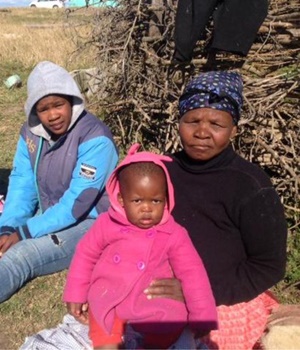
Village chief Xolile Ndevu says his community will disintegrate if mining giants Lonmin and Anglo American go ahead with their planned 12 000 job cuts.
Ndevu, who governs three villages – Mkhathazo, Mpame and Mndwaka on the outskirts of Mqanduli in the former Transkei – said 90% of his employed male residents worked on the mines.
“This is a disaster waiting to happen. One cannot even imagine the damage such a move would create in my villages and others in similar positions,” he said.
“If they go ahead with this, it will create orphans, desperation and more crime.”
Ndevu, the general secretary for the Congress of Traditional Leaders of SA, said he had warned his people – many of whom are illiterate and work as rock-drill operators on mines – of possible job cuts after the strike at Marikana in 2012, and now his “worst fears have been confirmed”.
“For a long time, our people, when they go work in these mines, would always come back and buy a small herd of cattle and sheep. They grew maize and vegetables in their gardens. Without support, they will turn into criminals and thieves,” he said.
In remote Mkhathazo, a few kilometers from the Wild Coast’s picturesque Mpame beach, wives and grandparents head families living in scattered rondavels.
There is no electricity, and only one communal tap in each block. The roads, occupied by blanket-clad old men and their young, unemployed counterparts who carry fighting sticks, are dusty and almost impassable by car.
Census data reveal just how dependent those who live there are on the mines. Only 5% of residents have jobs in the area, 34% have no education at all, only 10% have completed matric and 31% are aged between 10 and 19.
Noseven Mgcitheni (75) sits next to a sheep kraal with three of her grandchildren: Zifikile (20), Ovayo (5) and Sivise (1).
Her family’s hope for a better life rests on her sons, Luvuyo (45) and Sivuyile (35).
Luvuyo is a rock-drill operator at Lonmin, which is scheduled to shed 6 000 jobs, while Sivuyile, who once worked for the same mine, is now unemployed.
Her eldest son is married with two children and stays with his family in Marikana. She fears he could lose his job too.
Luvuyo has almost finished extending their three-room home, but Mgcitheni says that if he loses his job, they will be forced to remain in their four mud rondavels.
“This is sending us straight to the graves. We are old and our children are the ones taking care of us. If they lose their jobs, it means the end of life for us. What are we going to eat? And what will their children, my grandchildren, eat?”
Nearby sits Mafida Mgelana (57). He lost his job at Anglo Platinum in 2010 after TB made him too sick to work. His son, Ndovela (30), now works at the same mine and his family’s hopes rest in his hands.
“We are looking to him as a family. He is the only breadwinner and he supports the family, my wife and his four younger siblings. Nobody at home is working except him. If he lost his job, we would die from hunger because there are no jobs here,” he said.
Local shopkeeper Albert Wolde, who is from Ethiopia and who runs a small café and a hardware shop in Mkhathazo, said mine workers were the community’s lifeblood – and his too.
“If the people in the mines lost their jobs, we would also have to close shop. The mine workers are the ones who support our businesses here,” he said.
Many mine workers have accounts with him and he keeps a tally in a book.
“As I speak to you, I am owed about R20 000 for this month. Most of them pay. But if they lose their jobs, they won’t be able to pay any more.”




 Publications
Publications
 Partners
Partners








